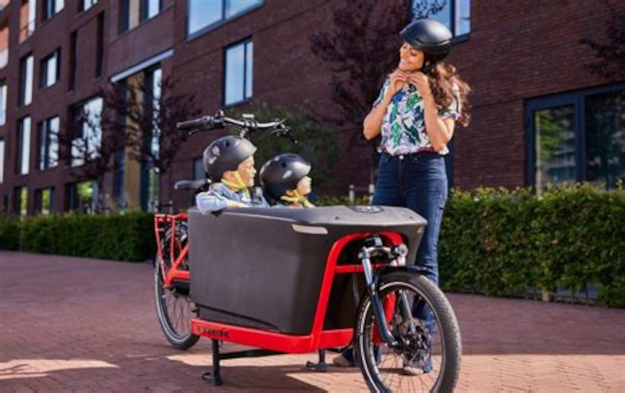The use of cargo bikes has been increasing over the last years. Even in countries so pro-car as the USA, this kind of bicycles remains a clear alternative to cars. Maddy Novich, Criminal Law teacher at Manhattan University, knows it in deep. This mother of three has five cargo bikes and uses them to carry couches or big wardrobe, and also her three children. The children enjoy the rides while playing, eating, or chatting in the box. Moreover, she is always open to answer questions in relation to bikes and particularly cargo bikes to others moms who want to gain independence and take care of their health and environment. Maddy advises about issues like what cargo bike model to choose or how to drive a cargo bike.
She has also visited several European countries and appreciates specially those who offer good, physically separated bike lines from car lines. Indeed, Maddy started using cargo bikes in Amsterdam back in 2019. Moreover, she highlights the difference mentality of European and American car drivers. She affirms that in general European car drives respect bikers more in the sense that they reduce speed and keep more safety distance when they see a bicycle.
